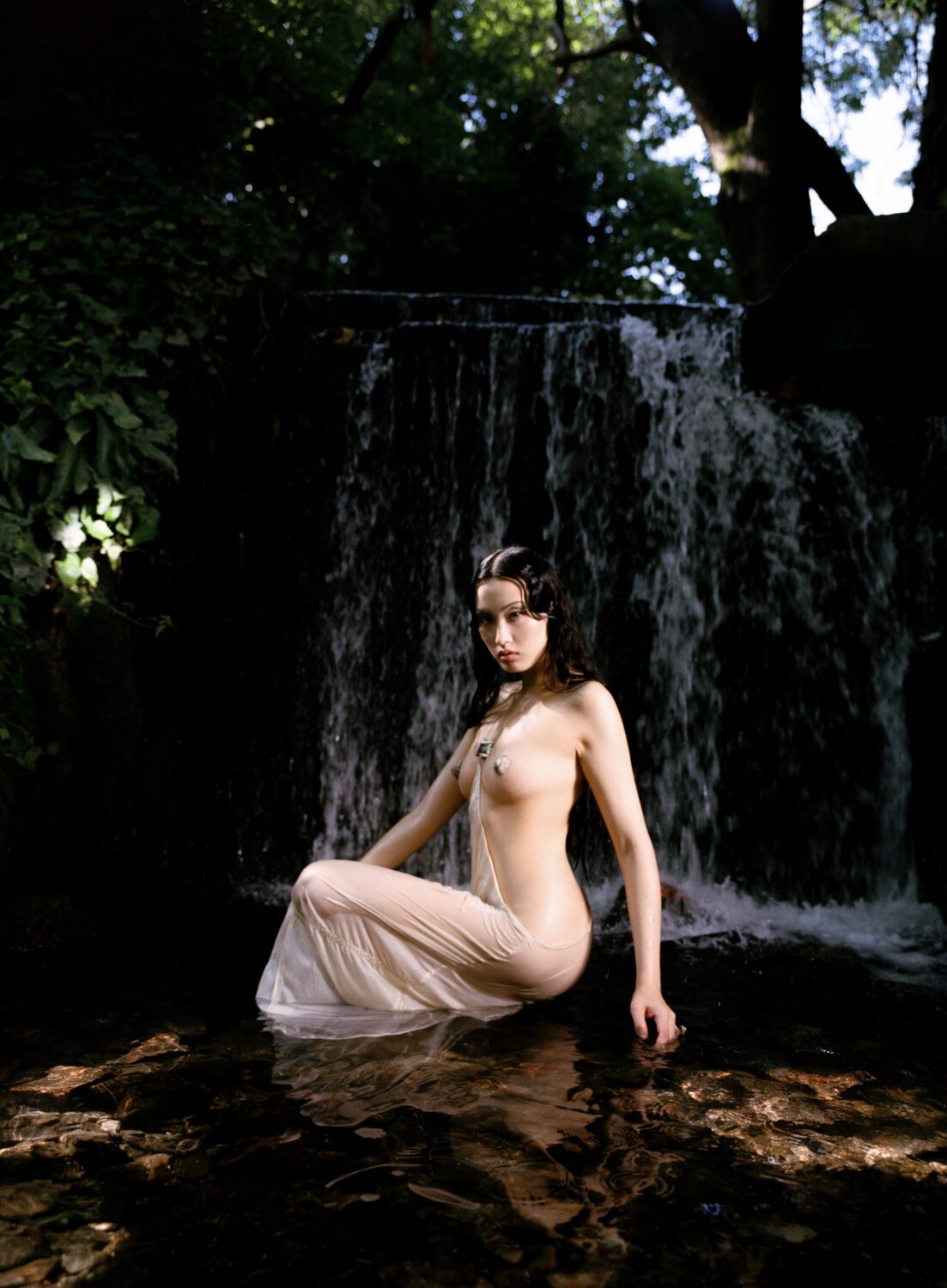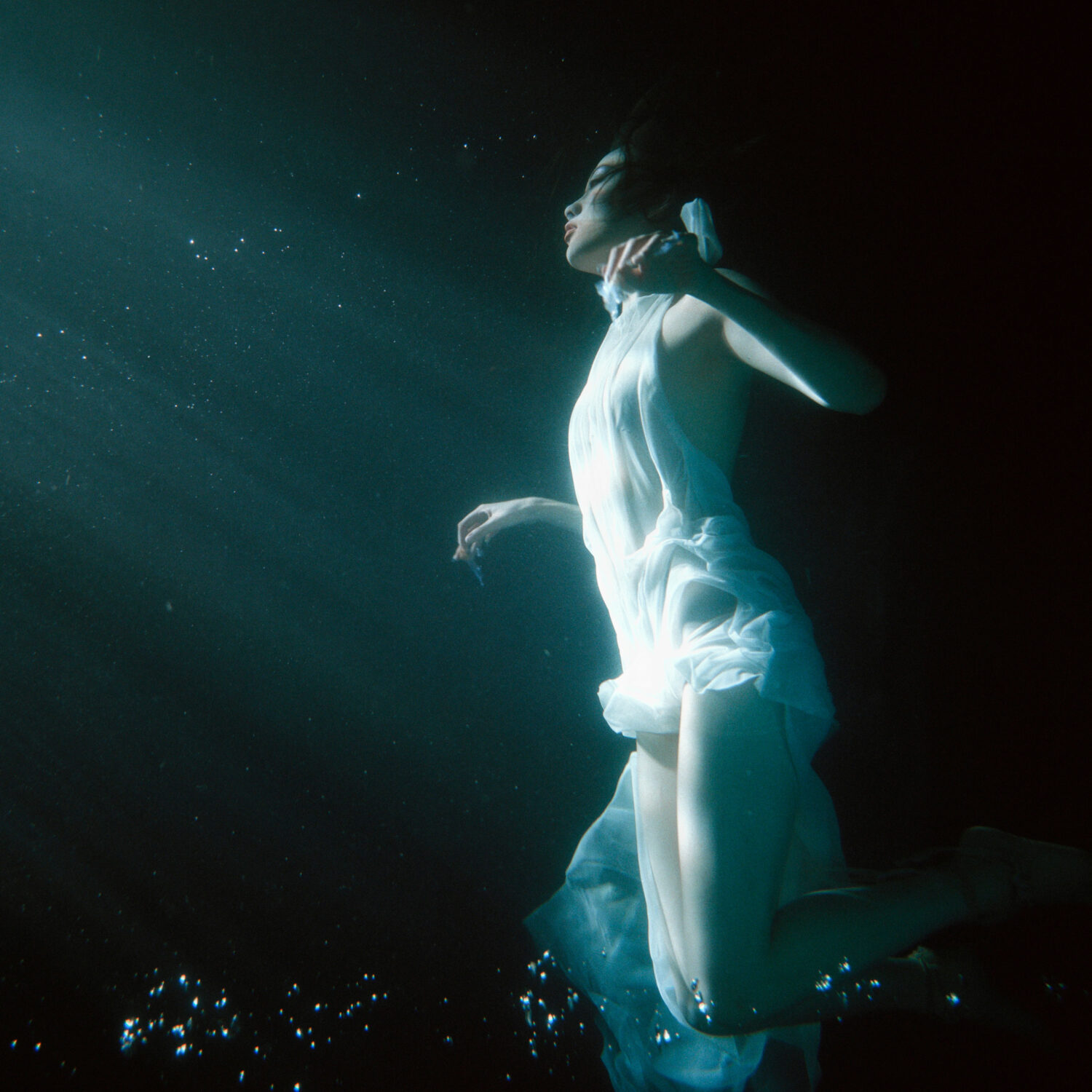Interview: Xiaoqiao on Slow Cinema, Anish Kapoor, and Her Debut EP ‘Weltschmerz’
By Keshav AnandOut on 9 April, the London-based harpist and singer-songwriter Xiaoqiao emerges with her anticipated debut, Weltschmerz, a reverie of memory and introspection. Layering celestial harp melodies and spectral harmonies, her work draws from ancient philosophy and contemporary sonics alike. The project’s lead single, Lethe, unfurls as a hypnotic lament, meditating on oblivion, accompanied by a hauntingly cinematic visual. Following collaborations with Vivienne Westwood and Armani, and performances at the ICA and Lisson Gallery in London, Xiaoqiao now steps fully into her own, inviting us into a world where waking and dreaming dissolve into one. In conversation with the musician, SC’s Keshav Anand learns more about the new EP and the influences that shape her work.
Keshav Anand: How did you decide on the title, Weltschmerz, for your debut EP?
Xiaoqiao: The word “Weltschmerz” is a literary concept coined by Romantic writer Jean Paul – it describes the weariness felt when reality can never quite match the vastness of the mind. It’s a feeling I often carry in life and I think that’s one of the reasons I started making music. Writing is almost a way to release those ghosts and demons lingering within me, to find solace in that tension. I think this mood ties the entire EP together. I’m drawn to undercurrents and the subconscious ocean, and in Weltschmerz I tried to capture those fleeting echoes and dreams that brush against us, an extension beyond the tangible world.
KA: What first drew you to the harp?
X: I remember my dad took me to a music shop when I was five to buy me a piano, and I saw this grand, golden pedal harp at the centre of the shop for the first time and was completely mesmerised. But the true calling moment was after hearing Alice Coltrane. She played the harp like a portal, an ocean of fluid waves that makes you feel like nothing is concrete. She inspired me to approach the harp more as a vessel for sonic ritual.

KA: Your music brings together ancient and contemporary influences that span vast geographies, from Gregorian chants to Taoist parables. I wonder if you could expand on your process and what interests you in this sort of sonic collaging?
X: I’m interested in anything that feels surreal and elusive. My process is quite intuitive – ideas always swim to the surface later like a fish. The Taoist parable surfaced in my other single about the Butterfly Dream paradox: the uncertainty of whether you are dreaming of being a butterfly or if a butterfly is dreaming of being you. And I happened to listen to a lot of chants and Renaissance polyphony at the time making this EP – to me they sound like echoes from a dream, and that influenced Weltschmerz, which I wrote almost like a choral piece. I love the idea of sonic palimpsests, where layers of sound, myths and metaphor fold into each other, existing outside of time.
KA: Lethe explores the theme of memory erasure through the myth of the river Lethe. What drew you to this particular story?
X: I always think of how we relate to memory and the undercurrents, how we constantly reshape them in our minds yet they continue to haunt and shape our present. Dreams too, are a way of processing memory. And sometimes we have a desire to escape, from those discreet, vulnerable pasts, things that linger and echo in the corner of darkness – as if, if we could find a way to erase them we’ll be free. But then it comes to the unbearable lightness of being. The idea of memory being both a burden and a passage to transcendence was something I wanted to explore in Lethe.

KA: How did the world for the Lethe music video evolve?
X: At the beginning we thought to shoot an underwater video, of me stepping into the river Lethe, lost among floating memories. But as we mapped out the narrative, it expanded into something more layered, a parallel labyrinth. The self haunted by hidden discreet memories is like a shadow self – in attempting to erase, you also have to confront. We tried to capture these two mirrored selves calling and echoing through the river of oblivion, ultimately finding reconciliation in their reflection, like letting those memories settle as part of your chamber.
KA: Your compositions have a very cinematic feel. Do you have an interest in film scoring?
X: Yes, absolutely. A lot of my inspiration comes from cinema – Apichatpong, Tarkovsky, and slow cinema in general, where everything just feels fluid and blurred. I sometimes play those films in the background while I improvise, and just let the image and sound flow through me. Cinema to me is like dreaming – the need to be in the dark sometimes and to lose oneself.
KA: I’m curious to learn more about your performance for Anish Kapoor at Lisson Gallery – how did that come about?
X: I performed at Lisson Gallery two years ago for their Choreomania programme, where I met the curator. She approached me to perform for this special exhibition, where Anish Kapoor was presenting his iconic concave mirrors in purple for the first time. It was surreal to play among these magical sculptures – the mirrors have these mesmerising distorted reflections, everything became so fluid and intangible like reality just dissolved within them. So otherworldly, and that feeling is also something I always try to portray with my music, it feels like everything is echoing. Anish came to see the performance too, which was surreal.
KA: Do you have any upcoming performances we should know about?
X: Yes, I’ll be having my EP release show at the end of May in a church in London. I love playing in churches – it’s going to be special.
KA: Aside from your own work, what are you currently listening to?
X: Joanna Brouk, Dead Can Dance, and Ichiko Aoba.
Xiaoqiao’s debut release Weltschmerz is out on 9 April 2025 – pre-save the EP here. She will be performing at a free pre-launch event at Reference Point on Saturday 5 April from 7.30pm.
Feature image: Xiaoqiao. Photo: Erika Kamano